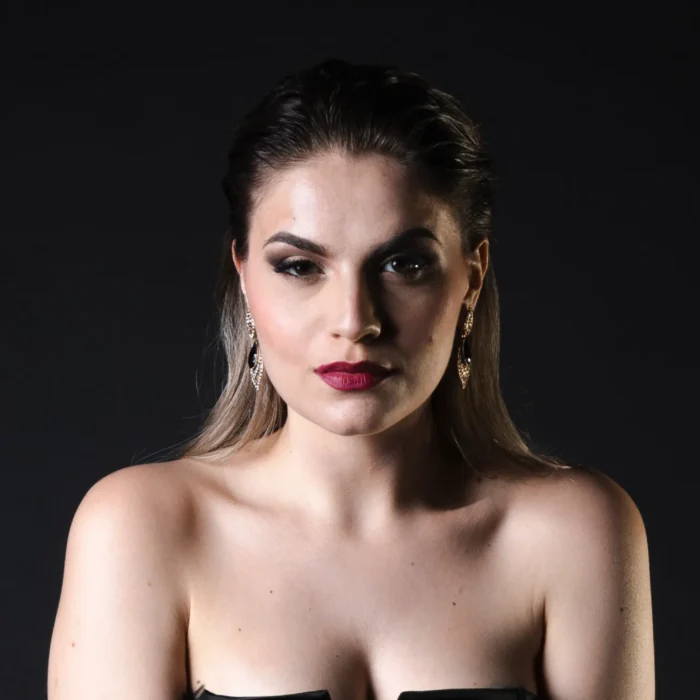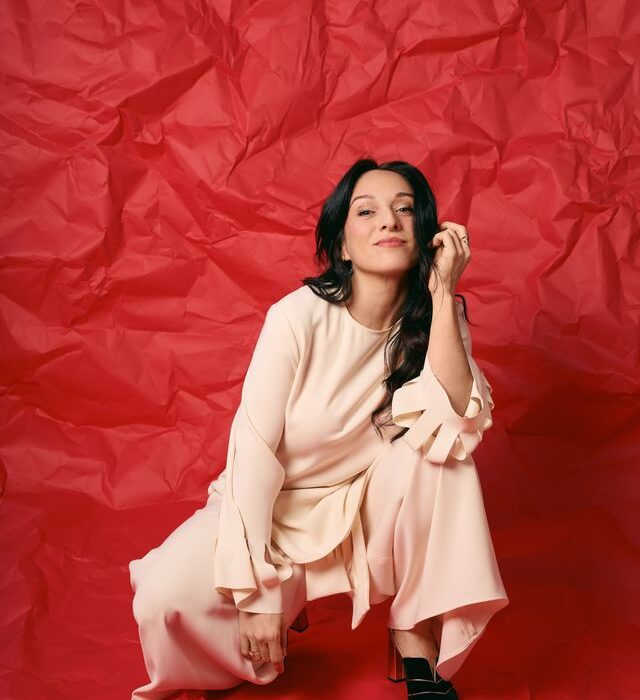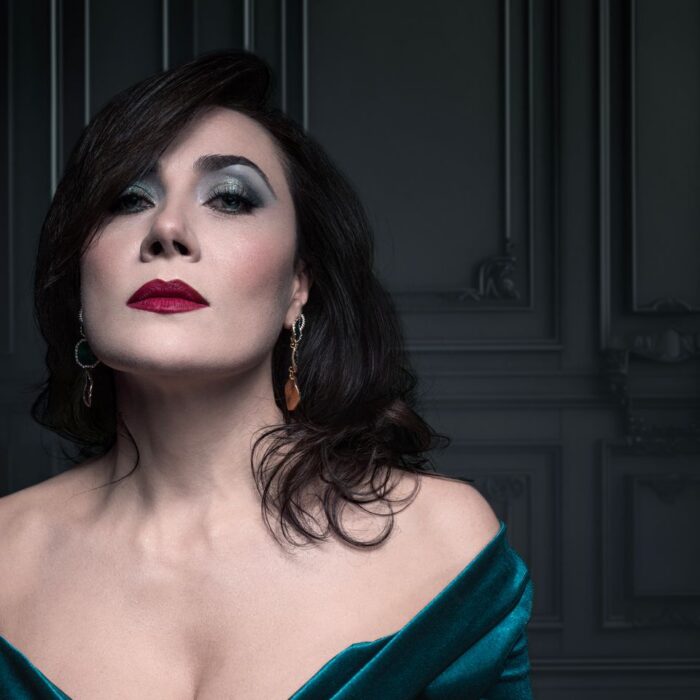
Q & A: Lidia Fridman on Her Wiener Staatsoper Debut, Donizetti, Verdi & Bel Canto
By Francisco Salazar(Credit: Natalia Mentugova)
In 2019, Lidia Fridman had a major breakout when she jumped into a run of Donizetti’s “L’Ange de Nisida” at the Donizetti Opera Festival. It was an introduction to an artist with a major voice.
Fast forward to 2025, Fridman has already performed at many major theaters as the Teatro dell’Opera di Roma, Maggio Musicale Fiorentino, Müpa Budapest, Teatro Verdi in Trieste, the Aalto Theatre in Essen, La Monnaie in Brussels, Teatro Regio di Torino, Deutsche Oper Berlin, Konzerthaus Berlin, Staatsoper Hannover, Teatro La Fenice, and Festival Verdi. She is currently making her house debut at the Wiener Staatsoper.
Her repertoire has also expanded greatly to include some of the most challenging Verdi roles as well as works by Strauss, Tchaikovsky, Donizetti, Bellini, and Mozart.
OperaWire spoke to Fridman in anticipation of her Wiener Staatsoper debut and how she paces herself while performing some of the most challenging roles in the repertoire at a young age.
OperaWire: The Bel Canto has been fundamental to your career. Tell me about your experience singing this repertoire and why it fits your voice.
Lidia Fridman: Bel canto has been the foundation of my vocal and artistic development. It taught me control, phrasing, and how to express deep emotions with discipline and nuance. From my early roles like Sylvia in “L’Ange de Nisida” and “Lucrezia Borgia,” I felt a strong connection to this style. My voice is naturally dark but flexible, and bel canto allows me to explore both vocal agility and long, expressive lines. It prepared me to approach more dramatic roles later on without ever compromising vocal balance. I always return to bel canto as my technical and emotional grounding.
OW: You had your breakout at the Donizetti Opera Festival. What do you remember from that, and did you know that was a turning point in your career?
LF: It was a truly defining moment — I was 23, and it was my first real contract. They called me just two weeks before rehearsals to sing Sylvia in “L’Ange de Nisida.” I couldn’t believe it. I threw myself into the score, trusting my teacher’s instincts and my agent’s encouragement. They all believed I could do it — and that it was the right moment. I spent those two weeks living with the score, working day and night. In the end, it was a real success — and that production changed my life. It was also when I discovered my deep connection with Donizetti’s music. From that moment on, everything started: it gave me the vocal and stylistic tools to approach his repertoire with confidence and love.
OW: This season, you sang Anna Bolena and Lucrezia Borgia. What is the difference between these two Donizetti roles, and what are the similarities? How have these roles developed in your voice?
LF: Lucrezia came to me right after my debut in Bergamo — I was still 23 and incredibly excited. It was an honor to debut this role so early, and it brought me a lot of luck: I’ve since performed it in Rome, Budapest, and Essen. I also sang Dalinda — an alternative version of “Lucrezia Borgia” — at the Konzerthaus in Berlin, where we recorded the CD. I’ll sing it again this year at the Concertgebouw in Amsterdam.
“Anna Bolena,” on the other hand, had been a dream of mine for a long time. I finally made my debut in Venice, at La Fenice, in a production by the great Pier Luigi Pizzi — a true master of the theater. The two women are very different. Lucrezia is more ambiguous and theatrical, with moments of explosive emotion and deep restraint. Anna is a tragic queen, and there’s an almost sacred quality to her suffering — the role demands dignity, control, and long, noble lines. Both roles require vocal discipline, flexibility, and a deep sense of phrasing. They’ve helped my voice mature, especially in managing sustained legato and navigating coloratura under pressure. Each one pushed me to grow — technically and interpretively.
OW: Now you are singing “Norma” in your Vienna debut. Tell me about this work and how it fits into your bel canto repertoire.
LF: I have worked extensively on “Norma.” It’s a role that entered my life relatively early, and I’ve had several opportunities to explore it in depth. I first approached it in 2021 at La Monnaie in Brussels, and since then, I’ve spent years deepening my understanding of the character. Norma is deeply complex, full of contradictions and emotional turmoil that require careful interpretation. It’s necessary to find the right colors and accents to truly express the depth of her emotions.
My work on Donizetti roles like “Anna Bolena” and “Lucrezia Borgia” gave me the vocal discipline and emotional nuance needed to take on such a demanding part. This debut in Vienna feels like a natural evolution in my path — and a moment I’ve long prepared for with care and devotion.
OW: What does it feel like to make your Wiener Staatsoper debut? Is it a new phase in your career?
LF: It’s a very emotional moment for me. I first visited Vienna when I was 14, on a long trip with my music school to sing in a children’s vocal competition. I was completely mesmerized by the city, and our teacher took us to the Wiener Staatsoper to see an opera. That night left a mark. I promised myself I would return one day — but I never imagined it would be as an artist on that very stage.
OW: You are very young and have already sung roles like Nabucco, Lady Macbeth, and Salome. You are also singing Marie in “Wozzeck.” How do you pace yourself in order to conserve your voice? And do you believe that bel canto has helped you to sing these more demanding roles?
LF: These roles require a lot of discipline, and bel canto has given me a strong foundation. I debuted “Nabucco” with Maestro (Riccardo) Muti, and we worked a lot at the piano exploring colors and phrasing before I even sang. The mental preparation was just as important as the vocal work, and during rehearsals, he made sure I rested my voice to avoid fatigue.
Lady Macbeth and Salome are two roles I adore. I had the chance to sing “Macbeth” in French at the Verdi Festival in Parma, and next year I will perform it again with Maestro Muti. I’m really looking forward to it — it will surely be a very deep experience. This year, I made my house debut at the Teatro del Maggio in Florence with a jump-in in Salome. I had just five days to revisit this very complex role and move from Anna Bolena to Salome, then shortly after to Norma. It was an amazing challenge, but I knew I could do it. I trusted my preparation and discipline.
These roles demand that you give your all, but at the same time, it’s important not to exceed your limits — always sing with your own voice, maintain your health, and occasionally give your voice a check-up. For me, this means sitting at the piano, alone or with my vocal teacher, using a mirror, and studying with great rigor.
OW: Many other roles that you sing would be sung by older singers, and most would wait to perform something like Abigaille in “Nabucco” and Amelia in “Un Ballo in Maschera.” Are they roles you want to perform often, or will you space them out throughout the years?
LF: These roles are usually taken on when a voice is fully mature, not necessarily by older singers. Thanks to careful study and technique, I feel ready to approach them responsibly. They will definitely be an important part of my future repertoire, but I’m mindful to balance these demanding dramatic roles with lighter bel canto parts. Maintaining flexibility and vocal health is essential for a long and sustainable career, so I alternate between different styles to preserve my voice over time.
OW: What other roles do you dream of singing in the future?
LF: I have so many dream roles because I’m a curious artist who loves diving into different characters. I’m especially drawn to tragic and mythological heroines like Medea and Alceste. In bel canto, Elisabetta in “Roberto Devereux” really excites me. And when it comes to Verdi, powerful roles like Odabella in “Attila” and Giovanna d’Arco. There are so many more waiting to be discovered!
FRANCISCO SALAZAR, (Publisher) has worked as a journalist for over 10 years with such companies as Latin Post, and freelanced for Remezcla. He has also published for El Diario and La Opinion. He is a media producer and a classically trained cellist who has performed in the New York area.
With OperaWire he has lectured at Bard College and been featured on Fred Plotkin, Jennifer Rowley and Angel Blue's programs.
He holds a Masters in Media Management from the New School and a Bachelor's in Film Production and Italian studies from Hofstra University.


